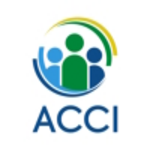
2024 Annual Conference
May 21–23, 2024
Hyatt Regency Milwaukee, Milwaukee, WI, USA
IMPORTANT NOTICE: The date, time, and room assignment of YOUR presentation is SUBJECT TO CHANGE.
Proposal authors can use this tool to see where they have been placed in the program agenda for an Oral or Poster Session.
Scroll down to search by the Submitter or Author Name, by Date/Time, or by Keywords.
Confirm your place in the schedule by following the instructionss that were emailed to you. Each presentation must have a separate paid registration. Contact the ACCI office immedicately by email at admin@consumerinterests.org to report any conflict, all corrections to the details of the presentation (including author names and the order they are listed as this is how it will be in the final program), or if you have any questions. Please be sure to reference the session title(s), date(s), and time(s) when you contact us.
B2b Digital Financial Literacy and Digital Finance Access in South Korea
Short Description
Digital financial literacy is an emerging concept that refers to the knowledge, skills, and abilities required for safe and efficient use of digitally delivered financial services. In this study, we aim to examine how digital financial literacy influences the adoption of digital financial services in South Korea, and whether users derive benefits from such services. Following the literature, digital financial literacy is conceptualized as a joint construct of financial knowledge and four domains of digital literacy related to digital finance. Using online survey data from 1587 adults, this study shows that digital financial literacy is associated with a higher likelihood of adopting digital platforms for banking, loans, stock investing, insurance, utility, payment, and credit card management. Further analyses find that digital financial literacy is linked to increased access to finance through digital platforms, reduced costs or fee waivers when using digital financial services, and informational benefits such as service recommendations and payment due reminders. When financial knowledge and digital literacy were modeled separately, the effects of digital literacy were generally greater than the effects of financial knowledge. Overall, our findings highlight the prominent role of digital financial literacy in promoting financial inclusion in the digital age.
Type of presentation
Accepted Oral Presentation